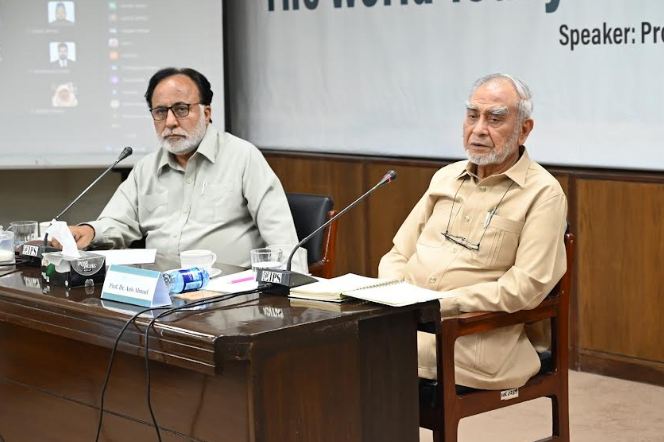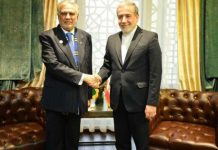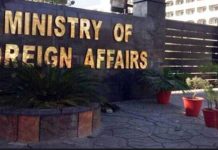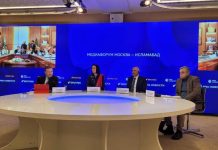ISLAMABAD, JUN 2 /DNA/ – Muslim youth need to navigate a path toward the collective well-being of humanity by reconnecting to their roots and exploring their rich intellectual and spiritual legacy. Only a generation driven by a sense of purpose, commitment, and responsibility can help introduce an alternative framework to salvage humanity.
This was the underlying message delivered by renowned scholar, social scientist, and Vice Chancellor of Riphah International University, Prof. Dr. Anis Ahmad, during a lecture at the Institute of Policy Studies (IPS), Islamabad.
The event was held in collaboration with the Markfield Institute of Higher Education, UK, and the International Institute of Muslim Unity at the International Islamic University, Malaysia (IIUM). Titled “What Ails Human Civilization Today?” the lecture was the second in the ongoing series “The World Today and the Future of Humanity.” The session was moderated by Prof. Dr. Mustafeez Ahmad Alvi, while Prof. Dr. Hazizan Md. Noon from IIUM participated as a discussant. A number of scholars and students from various parts of the world joined the hybrid session.
The lecture explored the deep-rooted malaise afflicting human civilization, issues that, according to Dr. Anis Ahmad, cannot be properly understood without a critical examination of the trajectory of Western modernity that has shaped the dominant global paradigm over the past few centuries.
Dr. Anis noted that the dualistic approach, which evolved from the European experience with the Church, altered the entire concept of what it means to be human. The mechanized life stripped individuals and society of the higher objectives of life, while self-centered individualism distorted the natural social fabric by damaging family structures.
Modern civilization, he said, is plagued by moral decay, excessive individualism, and a loss of direction, all symptoms of a deeper spiritual and societal crisis. “The rise of mechanical living and artificial constructs of identity reflects a troubling departure from natural and divine principles,” he observed.
Dr. Anis emphasized that Islam, as a complete and timeless way of life, offers a comprehensive framework through the Qur’an and Sunnah to confront these challenges. Islam offers not only doctrinal beliefs but comprehensive solutions rooted in ethical principles and the higher objectives of Islamic law. Muslims must reclaim intellectual and moral leadership through self-reform, diligent effort, and the practical application of divine guidance. He called on youth to move beyond dependency and passive consumption and, instead, embrace faith-guided purposeful engagement in all spheres of life.
However, transformation does not come overnight. Nations have to work consistently for decades, even centuries, to bring about a transformation in their societies. To develop a generation capable of inspiring people towards a fair and just world, Muslims have to inculcate strong ethical values through an institutional approach so that they can exert intellectual and moral influence on human thought at a global scale. The focus, he stressed, should shift from the quantity of knowledge to its quality and purpose.
Dr. Hazizan Noon echoed these concerns about the erosion of moral values and the need for a spiritually anchored worldview. He particularly urged for subjecting artificial intelligence to human intellect and ethical vision. “Development of ethical frameworks to guide the use of AI, rooted in Islamic thought, is both necessary and urgent,” he said.
Dr. Mustafeez Alvi concluded the session by reiterating the urgent need for purposeful, values-driven leadership. He urged Muslims to build upon the legacy of Muslim scholars and develop a comprehensive Islamic alternative to harmonize ethics, intellect, and purpose.
The IPS lecture series continues to serve as a vital platform for critically examining the global moral and intellectual challenges of the contemporary period and for exploring Islam’s role in shaping a more humane, ethical, and spiritually grounded future.

















